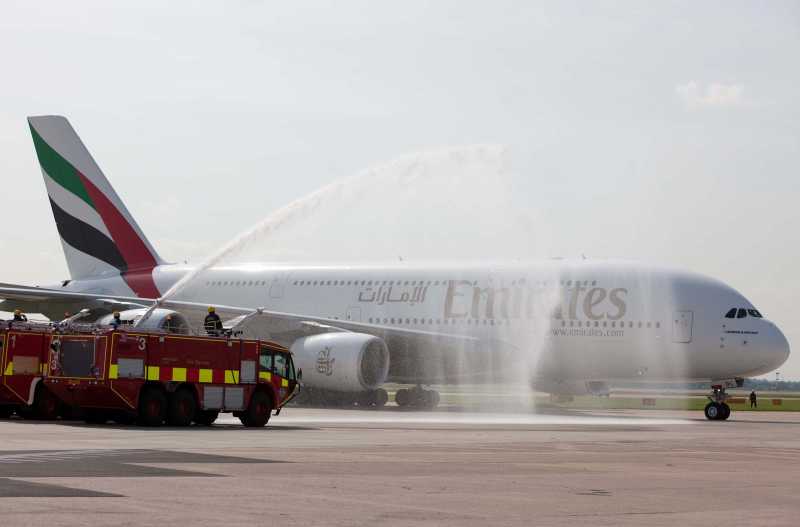Emirates to stop fly over Iraq0
 Dubai-based Emirates Airlines, one of the world’s biggest airlines, will stop flying over Iraq after concerns about the missile threat posed by Islamist militants on the ground, The Times reported.
Dubai-based Emirates Airlines, one of the world’s biggest airlines, will stop flying over Iraq after concerns about the missile threat posed by Islamist militants on the ground, The Times reported.
Sir Tim Clark, president of Emirates, said he believed that other carriers would follow suit, as the airline industry began a review of the way it assessed the risk of flying over conflict zones after the Malaysia Airlines disaster in Ukraine. The loss of MH 17 as attributed to a surface-to-air missile fired by pro-Russian separatists By the end of the year airlines will have devised a system to share information with each other about contentious flight paths, Sir Tim said.
Greater input from government intelligence agencies about what airspace is considered risky would also be welcome, regardless of the political sensitivities about one country warning about another’s airspace, the British president of the Dubai-based airline said.
“This is a political animal but . . . the fact of the matter is MH17 changed everything, and that was very nearly in European airspace,” Sir Tim said in an interview. “We cannot continue to say, ‘Well it’s a political thing’. We have to do something. We have to take the bull by the horns.”
The Times reported at the weekend that the United States was urgently investigating whether Isis fighters in northern Iraq had acquired missiles capable of shooting down a civilian aircraft at 30,000ft or higher from stockpiles in neighbouring Syria.
Hundreds of flights, including those by British Airways as well as Emirates, pass over Isis-held territory in Iraq every day, with a particularly popular route taking aircraft directly over the Iraqi city of Mosul, a stronghold of the hardline militants.
Sir Tim said that he was “not comfortable” with the situation. Emirates aircraft make up the largest number of the more than 50 flights a day that travel in and out of British airports and across Iraqi airspace, which lies on the main flight corridor linking Europe with Asia.
Instructions have already been issued to the company, the world’s largest international airline by number of passengers, to re-route the hundreds of Emirates flights that use Iraqi airspace daily en route to and from major European airports. The change in policy will take effect over the next week to ten days.
“We can’t do it all at once because we have got an awful lot going through it, but yes we will be doing that,” he said.
Alternative routes being considered would either take aircraft right across Saudi Arabia and the Red Sea, up over Cairo and into European airspace — a journey that would add up to 45 minutes to flight times — or over Iran.
“That is the kind of thing that will demonstrate to the public that we take this extremely seriously and that is exactly what we are doing,” Sir Tim said.
The highly respected airline executive has been particularly vocal about the need for change in the way that airlines assess the risk of flying through certain airspace since the Malaysian airline was shot down on July 17, with the loss of all 298 passengers and crew on board.
“The horrors that this created was a kick in the solar plexus for all of us,” Sir Tim said. “Nevertheless having got through it we must take stock and deal with it.”
The International Civil Aviation Organisation, a United Nations body that oversees civil aviation, will host a meeting with airline industry groups tomorrow to discuss ways to reduce the risks to aircraft flying over trouble spots.